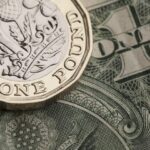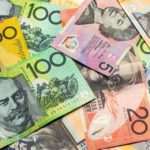Australian dollar retreated against its US counterpart in a highly volatile trade, the highest for the past 1.5 years, as China’s central bank signaled it will keep efforts to curb credit growth. Chinese shares submerged deeper into a bear tendency.
Additionally, Australian government bonds rebounded after Federal Reserve Bank of Dallas President Richard Fisher said on Monday, that market players should not overreact to central banks plan of decelerating bond purchases.
“Volatility in a lot of asset classes is here to stay. Commentary from the likes of Fisher provided some relief for the Aussie, but the market is still going to be focused on the China issue, and that’s still looking quite downbeat.”, said Jonathan Cavenagh, a strategist at Westpac Banking Corp. (WBC) in Singapore, cited by Bloomberg.
Aussie lost 0.2% against the US dollar, with AUD/USD falling to 0.9230 as of 5:45 GMT. On Monday the pair touched 0.9148, the lowest point since September 2010, before rallying 0.3%. The currency pair’s one-month implied volatility rose to 15.3% from yesterday, when it reached 15.5%, the highest level since December 2011.
Meanwhile, Goldman Sachs Group Inc. and China International Capital Corp. joined banks from Barclays Plc to HSBC Holdings Plc in reducing growth projections for China to 7.4% in 2013. This was below the government’s target of 7.5%. The People’s Bank of China said there was a reasonable amount of liquidity in the Chinese financial system and encouraged banks to control credit expansion risks, thus submitting a signal that there would be no relief from a cash shrinkage.
All in all, Australian dollar has erased 11% in the past three months, the worst performing currency, tracked by Bloomberg Correlation-Weighted Currency indexes. New Zealand dollar submerged by 5.7%, bound to the second place in the above mentioned classification.
Australian Treasurer Wayne Swan said on Tuesday, that the Aussie “is still putting handbrake” on some industries. “It’s good to see the Australian dollar depreciating, as it should as our terms of trade weaken and as the U.S. begins the very long journey back to normal monetary policy settings,” Swan said in Canberra, cited by Bloomberg.





